Overview
Mayo Clinic offers a comprehensive Committee on Advanced Subspecialty Training (CAST) and the Society of Neurological Surgeons (SNS) accredited one-year Stereotactic and Functional Neurosurgery Fellowship in Rochester, Minnesota. This program provides extensive training in the evaluation, diagnosis, and surgical treatment of functional neurosurgical disorders including:
- Movement disorders
- Epilepsy
- Cranial neuralgias
- Chronic and cancer-related pain
- Neurorehabilitation and recovery
The fellowship consists of both inpatient and outpatient experiences with primary clinical responsibility.
Program highlights:
- Large case volumes - Mayo Clinic performs more than 600 functional procedures a year
- Mentorship from five core faculty members who are recognized leaders in Functional Neurosurgery
- Clinical and translational research opportunities
hospital in Minnesota and nationally recognized on the Best Hospitals Honor Roll (U.S. News, 2025-26)
faculty to fellow ratio
functional neurosurgical procedures completed by the department annually
Accreditation, certification, program history
Accreditation
The Stereotactic and Functional Neurosurgery Fellowship program at Mayo Clinic in Rochester, Minnesota, is accredited by the Committee on Advanced Subspecialty Training (CAST) of The Society of Neurological Surgeons (SNS) as of May 2024.
Certification
After successfully completing the program, you receive a certification of completion in stereotactic and functional neurosurgery training from the Mayo Clinic School of Graduate Medical Education.
Program history
The Stereotactic and Functional Neurosurgery Fellowship began in 2024 and the fellowship is offered to one trainee each year to ensure that the fellow obtains comprehensive training in all salient aspects of functional neurosurgery. Mayo has a long history of neurosurgical education dating back almost 100 years. More than 500 residents and fellows have completed neurosurgical training with the Department of Neurologic Surgery.
Application process
Positions
There is one position available on a competitive basis each year in the Stereotactic and Functional Neurosurgery Fellowship at Mayo Clinic in Rochester, Minnesota. In compliance with guidance from the American Society for Stereotactic and Functional Neurosurgery (ASSFN) and the Society of Neurological Surgeons (SNS), no fellowship positions will be offered more than two years prior to the fellowship start date. While interviews may be conducted earlier, no offers can be extended outside this specified timeframe to foster fairness and equity during this process.
Qualifications
Applicants for the Stereotactic and Functional Neurosurgery Fellowship program must have completed an Accreditation Council for Graduate Medical Education (ACGME) seven-year Neurologic Surgery program.
Internal candidates (Mayo Clinic PGY-7 resident)
- Residents who are in good academic standing are eligible to complete the fellowship after the completion of their chief resident year.
- Successful completion of the American Board of Neurological Surgery (ABNS) written board examination with a score of 70 percent or better.
- Demonstrated interest in functional neurosurgery, including academic achievement in functional neurosurgery.
External candidates
- Preference will be given to candidates who have completed an ACGME accredited residency program.
- Good academic standing as stated in a letter from the applicant's residency program director.
- Perceived to be a future leader in functional neurosurgery.
- Foreign medical graduates must be ECFMG certified and have USMLE Steps 1 and 2 completed prior to applying, step 3 preferred.
Also see general admissions requirements.
How to apply
Mayo Clinic School of Graduate Medical Education does not process printed applications for this program. You must apply through Recruit, a third-party application service. No matching program services are used currently, however the fellowship will continue to follow CAST guidelines and progress to a match when instructed by CAST. You must submit a completed application form and all required documents no later than Feb, 1, 28 months in advance of the fellowship start date.
Complete the following steps to apply:
- Create an account to begin the online Application for Admission
- All applications to Mayo Clinic School of Graduate Medical Education programs must include these application materials
- After submission, view the required Supplemental Items and Documents
-
- Upload each required item in the Supplemental Items section (if applicable)
- Complete the Recommendation Request section (if applicable)
Applicants considered for an appointment will be invited for a personal interview with the program director and selected faculty.
Interviews are conducted between April and June each year.
/prod01/channel_2/media/mccms/content-assets/academics/residencies-and-fellowships/stereotactic-and-functional-neurosurgery-fellow-mn/stereotactic-functional-neurosurgery-fellowship-mn-1024X512-WF3789071-0002.jpg)
Curriculum
Clinical training
The Stereotactic and Functional Neurosurgery Fellowship offers academic clinical and research training at one of the top medical facilities in the world — Mayo Clinic in Rochester, Minnesota. It is our expectation that graduates from this program will be fully trained in the evaluation, diagnosis, and treatment of functional neurosurgical disorders including movement disorders, epilepsy, pain, cranial neuralgias, neurorehabilitation, and spasticity.
Rotation schedule, rotation descriptions
Rotation schedule
| Rotation | Length |
|---|---|
| Dr. Ali's service | 3 months |
| Dr. Lee's service | 2 months |
| Dr. Miller's service | 2 months |
| Dr. Pollock's service | 1 month |
| Dr. Van Gompel's service | 2 months |
| Elective time | 2 months |
Rotation descriptions
Dr. Ali's service
- Adult pain
- Adult movement disorders
- Adult neurorehabilitation
- Adult spasticity
- Adult epilepsy surgery
Dr. Lee's service
- Adult movement disorders
- Adult psychiatric surgery
Dr. Miller's service
- Pediatric and adult epilepsy
- Pediatric and adult movement disorders
Dr. Pollock's service
- Adult radiosurgery
Dr. Van Gompel's service
- Adult epilepsy surgery
Elective rotation
Electives, didactic training, call frequency, procedures
Electives
Elective rotations may be clinical, or research based. Clinical rotations follow the clinical neurosurgery rotation format scheduling (75% inpatient, 15% outpatient, and 10% research). Research electives will involve a mentored research project. If the elective rotation is research, you will spend 90% on research and 10% on clinical. Internal fellows will still be required to take chief call. While no call is required of an external fellow, you will still be required to participate in related educational activities. All research electives will be supervised by Program Director, Dr. Rushna Ali, with input from other physicians depending on project scope.
Didactic training
Clinical conferences, seminars, small discussion groups, journal clubs, and one-on-one instruction are integral parts of this fellowship. You also have access to a cadaver lab, dissection lab, and courses, as well as a world-class microsurgical training experience. You are required to attend conferences that are related to stereotactic and functional neurosurgery and are encouraged to attend other conferences relevant to your career goals.
Call frequency
Internal enfolded applicants will continue to take chief call. External candidates are not required to take call.
Procedures
Committee on Advanced Subspecialty Training (CAST) procedural requirements — 150 cases total across the five categories, and:
- Minimum number of cases as listed in at least three of the five categories, one of which must be either DBS or epilepsy, and
- 45 of the total number of cases must involve intracranial stereotaxy.
- Deep brain stimulation (any indication) (minimum 20) Mayo average 80-100
- Neuromodulation for pain (minimum 20) Mayo average 60
- Epilepsy (craniotomy for monitoring/investigation/treatment) (minimum 20) Mayo average 136
- Trigeminal neuralgia/hemifacial spasm surgery (minimum 10) Mayo average 60
- Intracranial ablation procedure (RF, HiFU, SRS, LiTT) (minimum 10) Mayo average 30-40
Conferences, research opportunities, moonlighting, teaching opportunities
Conferences
- Weekly Surgical Epilepsy Conference
- Weekly Deep Brain Stimulation Conference
- Monthly Spine Trauma Conference
- Monthly Morbidity and Mortality Conference
- Journal Clubs
Research opportunities
You are involved in ongoing research projects based on your interest and background to further academic training as well as clinical abilities. These projects are tailored to your future interests and designed to enhance the recruitment of patients to your practice in the future. Two manuscripts are required to be prepared for submission to a peer-reviewed journal.
Moonlighting
Moonlighting is prohibited.
Teaching opportunities
You have the opportunity to present at Grand Rounds, clinical case conferences, and national meetings, and have day-to-day opportunities for resident education.
Evaluation, mentorship, facilities and locations
Evaluation
You will receive quarterly evaluations by the program faculty. You will also receive a formal evaluation at the conclusion of the program. Additionally, you will have the opportunity to provide feedback in regards to the program and program faculty.
Mentorship
You will be assigned to a single service for an average of two months where you will have the opportunity for one-on-one mentorship with individual faculty members. The program director will also provide constant oversight and will review topics like job opportunities, practice building, establishing research opportunities, and obtaining grant funding, along with clinical teaching and training.
Facilities and locations
All training will take place at Mayo Clinic in Rochester, Minnesota. Our facilities include state-of-the-art operating rooms including an intraoperative MRI suite, multidisciplinary clinics, and world-class dissection labs.
Belonging
At Mayo Clinic, we foster an inclusive working environment and embrace the diversity of all our trainees, faculty, staff, and patients. Our Office of Belonging offers tremendous resources to support our mission of maintaining a welcoming atmosphere for all our employees, including our learners. We strive to provide culturally appropriate care and do our part to reduce healthcare disparities.
/0x0:512x512/prod01/channel_2/media/studio-sites/mccms-reference-guide/512X5121573348_3801872_0024-(1).jpg)
Video: See yourself at Mayo Clinic
5:33
From the program director
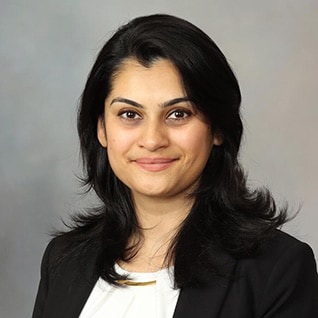 Welcome to the Stereotactic and Functional Neurosurgery Fellowship in Rochester, Minnesota. We look forward to training the future leaders of functional neurosurgery by providing exceptional clinical and technical training - which is complemented by extensive research opportunities, coaching on practice building, and creating opportunities for involvement in organized neurosurgery. Thank you for your interest in our program.
Welcome to the Stereotactic and Functional Neurosurgery Fellowship in Rochester, Minnesota. We look forward to training the future leaders of functional neurosurgery by providing exceptional clinical and technical training - which is complemented by extensive research opportunities, coaching on practice building, and creating opportunities for involvement in organized neurosurgery. Thank you for your interest in our program.
Rushna Ali, M.D.
Stereotactic and Functional Neurosurgery Fellowship Program Director
Department and faculty
The Department of Neurosurgery at Mayo Clinic in Rochester, Minnesota, is one of the largest and most highly regarded in the United States. Each year, the entire spectrum of neurosurgical conditions and diseases is treated essentially at one site, which ensures an unparalleled training experience. The department performs approximately 5,000 neurosurgical procedures each year.
This caseload includes more than 600 functional procedures each year. The entire spectrum of functional neurosurgical disorders, ranging from straightforward to complex, are treated at our site in a multidisciplinary fashion. This allows fellows to not only develop clinical and technical proficiency but also provides an opportunity to develop the necessary skills to develop multidisciplinary programs in their own practice after completion of the fellowship.
Meet the faculty
We have five core faculty who are highly regarded figures in functional neurosurgery as master clinicians, educators, and researchers. Their expertise encompasses all aspects of functional neurosurgery and their commitment to training and mentorship is unparalleled. As a group, they hold multiple highly coveted research grants, are PIs on cutting-edge clinical trials along with holding leadership positions in organized neurosurgery.
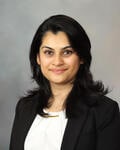 |
Rushna Ali, M.D.Program Director
Dr. Ali is an expert on functional neurosurgical interventions including neuromodulation and lesioning procedures for cancer and chronic pain, movement disorders, cranial neuralgias, epilepsy, and neurorehabilitation and restoration. Her research interests are focused on clinical trials for advancing innovative care.
|
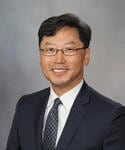 |
Kendall Lee, M.D., Ph.D.Associate Program Director
Dr. Lee is an expert on neurological disorders, seeing patients with Parkinson’s disease, Tourette’s syndrome, dystonia, and other neurodegenerative diseases. His research focuses on developing deep brain stimulation for the treatment of Parkinson's disease, tremor, depression, obsessive-compulsive disorder, and epilepsy. Dr. Lee is fascinated with the possibility of combining sophisticated electrophysiological and electrochemical recordings with miniaturized analytical elements (microprocessors) to augment or repair the disrupted function of the brain.
|
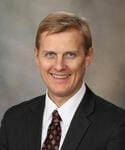 |
Kai Miller, M.D., Ph.D.
Dr. Miller is a pediatric and adult neurosurgeon who specializes in brain tumors, epilepsy, and deep-brain stimulation. He manages patients in both the operating room and in the outpatient setting. His research involves measuring electrical brain activity with patients undergoing therapy with implanted electrodes, to understand brain circuit dynamics and develop new therapies. In addition to Dr. Miller's active clinical and research programs, he teaches graduate students and mentors neurosurgical residents and fellows.
|
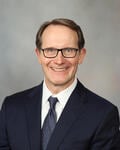 |
Bruce Pollock, M.D.
Dr. Pollock is a world-renowned expert in radiation therapies including stereotactic radiosurgery for cranial neuralgias, tumors, and vascular malformations. He has an exemplary record of training residents and fellows and has held multiple leadership positions in organized neurosurgery and has been heavily involved in performing seminal research.
|
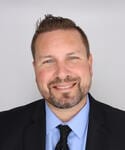 |
Jamie Van Gompel, M.D.
Dr. Van Gompel (M.D. honors and B.S. honors) is a professor in neurosurgery and otolaryngology specializing in endoscopic/open skull base as well as epilepsy at Mayo Clinic in Rochester, Minnesota. He completed his undergraduate and medical school training at the University of Wisconsin at Madison. He has worked at the NIH as well as completed a Howard Hughes Fellowship in research. Dr. Van Gompel's neurosurgical training was undertaken at Mayo Clinic and he went on to complete a complex cranial fellowship under the tutelage of Dr. Harry van Loveren at the University of South Florida. His current clinical and research interests involve device development for epilepsy and treating skull base tumors such as pituitary adenomas. Dr. Van Gompel's active research is on stimulation for epilepsy and other novel indications as well as device development.
|
Meet our fellow
Daniela Stastna, M.D., M. Phil
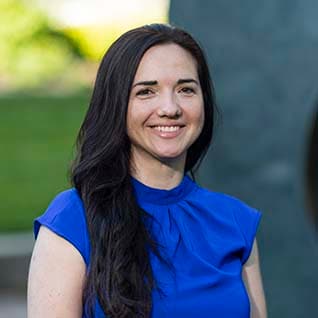 Residency: Hospital Na Homolce, Prague, Czechia
Residency: Hospital Na Homolce, Prague, Czechia
Why Mayo Clinic: Functional neurosurgery is the fastest-growing subspeciality, expanding spectrum of future treatment options through deeper understanding of brain function and breakthroughs in neuroscience, AI signal analysis, and brain-machine interface technology.
Working at Mayo Clinic Neurosurgery offers an incredible opportunity to be at the forefront of innovation, engineering, and clinical excellence. I am excited and grateful for this opportunity.
Wellness initiatives
As a trainee, your physical and mental health are priorities to Mayo Clinic and the department. Trainees have access to several resources to promote well-being, as well as time off clinical duties to attend appointments.
- Dan Abraham Healthy Living Center
- Groups on campus
- Well-being
Dan Abraham Healthy Living Center
 Trainees have access to the Dan Abraham Healthy Living Center (DAHLC), which is located on both Mayo Clinic campuses (downtown and Saint Marys) in Rochester, Minnesota. This state-of-the-art fitness facility offers basic classes (including free weights, stretching, cardio, and more), drop-in classes, evaluation services, group training, virtual personal training, and virtual wellness coaching.
Trainees have access to the Dan Abraham Healthy Living Center (DAHLC), which is located on both Mayo Clinic campuses (downtown and Saint Marys) in Rochester, Minnesota. This state-of-the-art fitness facility offers basic classes (including free weights, stretching, cardio, and more), drop-in classes, evaluation services, group training, virtual personal training, and virtual wellness coaching.
Membership to the DAHLC is available at a low cost to trainees and their families through payroll deduction.
Video: Dan Abraham Health Living Center
Video: A look inside the Dan Abraham Health Living Center
Groups on campus
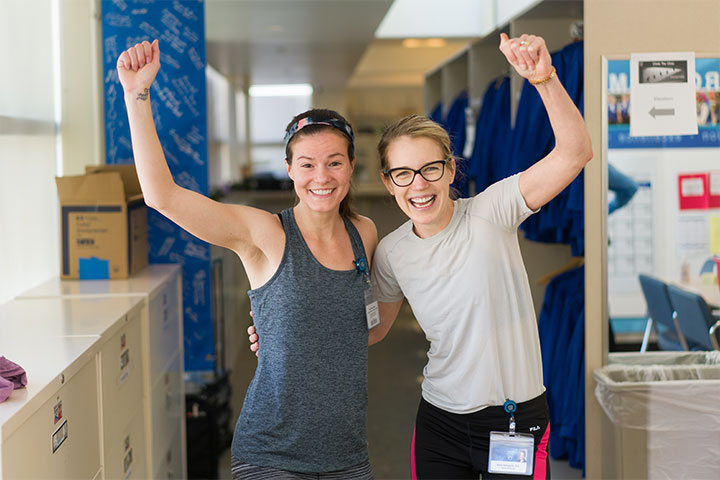 Several groups on campus help you connect with other fellows and their families, such as the Mayo Fellows Association, the Mayo Families' Connection, and Mayo Employee Resource Groups. These groups help enhance your training by providing and organizing wellness initiatives and social activities.
Several groups on campus help you connect with other fellows and their families, such as the Mayo Fellows Association, the Mayo Families' Connection, and Mayo Employee Resource Groups. These groups help enhance your training by providing and organizing wellness initiatives and social activities.
Workshops for spouses and significant others are also available.
Well-being
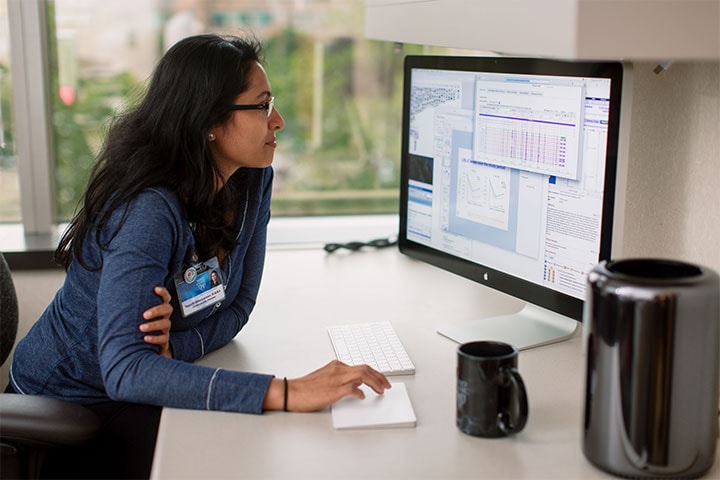 The Office of Academic Support and Well-Being provides resources to promote academic, emotional, social, cognitive, financial, and physical well-being. Career and academic services include academic advising, peer tutoring, and accommodations for learners with disabilities or health conditions. Mental health services, counseling, interview practice, and a variety of enrichment sessions on topics like budgeting, resiliency, and stress and burn-out are also available through the Academic Support and Well-Being office.
The Office of Academic Support and Well-Being provides resources to promote academic, emotional, social, cognitive, financial, and physical well-being. Career and academic services include academic advising, peer tutoring, and accommodations for learners with disabilities or health conditions. Mental health services, counseling, interview practice, and a variety of enrichment sessions on topics like budgeting, resiliency, and stress and burn-out are also available through the Academic Support and Well-Being office.
More from Mayo Clinic School of Graduate Medical Education
/0x0:512x512/prod01/channel_2/media/mccms/content-assets/academics/residencies-and-fellowships/3319834_0363-512X512.jpg)
Choosing Mayo Clinic
/0x0:512x512/prod01/channel_2/media/mccms/content-assets/shared-documents/campus-MEYR6203-pic-tile.jpg)
Rochester, MN
Campus and community
/0x0:512x512/prod01/channel_2/media/studio-sites/mccms-reference-guide/512X5121676671_3824027_0010_C.jpg)
Stipend and benefits
Mayo Fellows Association (MFA)
The Mayo Fellows Association (MFA) offers a peer and social support network for residents and fellows and their families with social events, athletics, and advocacy. The MFA also holds an annual resident and fellow appreciation event open to all trainees with complimentary massages, stress-reducing activities, and social support.
/360x0:1080x720/prod01/channel_2/media/mccms/content-assets/academics/residencies-and-fellowships/stereotactic-and-functional-neurosurgery-fellow-mn/stereotactic-functional-neurosurgery-fellowship-mn-1440X720-WF3789071-0182.jpg)
/0x0:440x220/prod01/channel_2/media/mccms/content-assets/campus-amp-community/minnesota/440X220_sidebar-mayo-clinic-rochester-mn-3554057-0012.jpg)